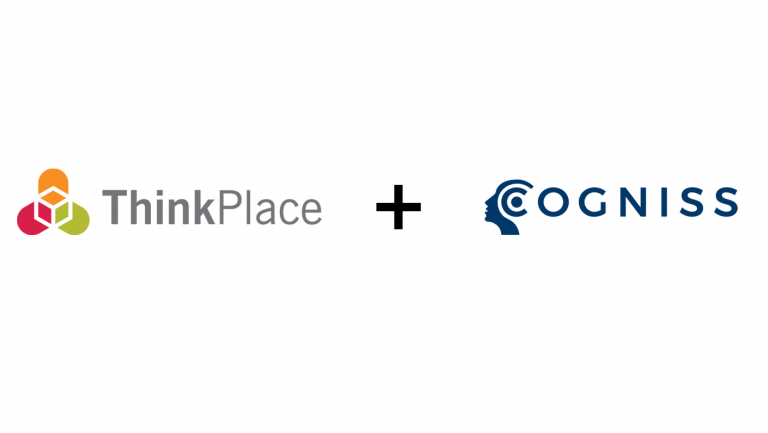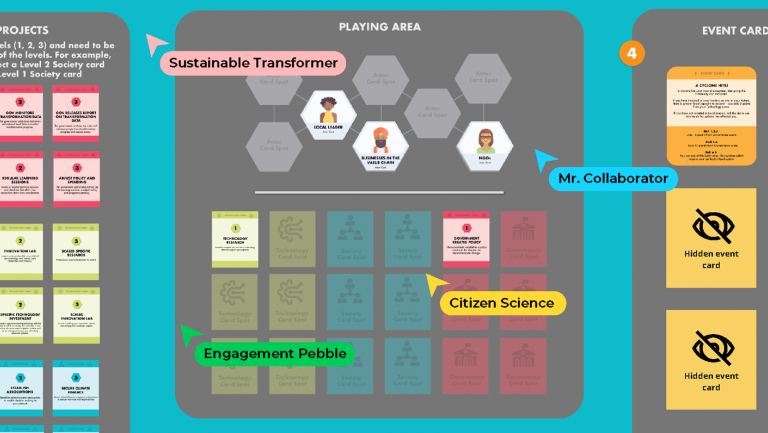Sign up for our monthly newsletter

Designing the future city with the citizens who will live in it
What kind of city do you want to live in?
How sustainable will it be? What kind of transport will it offer? And how will it balance sometimes-competing needs like economic growth and social inclusion?
Most importantly: How much say should YOU have in the answers to all of these questions?
They are questions that many governments – including the ACT Government – must grapple with as they go about the process of shaping plans and strategies for the future of their cities.
It’s a far cry from Walter Burley Griffin handing down his masterplan; the fully-formed work of a genius.
Increasingly, state and local governments are recognising that citizens can and must play an active role in deciding the future direction of the cities they live in. And ThinkPlace – as a global design network with skills and experience in strategic urban thinking but also deep roots in human-centred design and user engagement – is perfectly placed to help.
That’s why the ACT Government has turned to us to design and implement a better way of engaging with the public as it refreshes its 2012 planning strategy. The refreshed document will guide the city’s growth for generations to come as Canberra expands and develops but also strives to retain quality of life for its inhabitants and to meet ambitious targets, including zero carbon emissions by 2045.

ThinkPlace is expert in designing creative, collaborative solutions to the type of problems that arise within complex systems.
And what could be a clearer example of a complex system than the modern urban environment, as governments strive towards creating sustainable, ‘smart cities’ that are also great places to live?
In commissioning this process, the ACT Government did not just want input from citizens; it wanted a high-level strategic conversation. It wanted to inform and educate Canberrans about the issues and possible futures awaiting their city and then seek their informed input around possible directions, solutions and innovations.
“We want to embark on an engagement that checks in with the community and sees that we are getting things right in moving forward with government policy,” Planning Minister Mick Gentleman says.

So how do we do that?
ThinkPlace has created an innovative project that involves a series of public seminars. Each of them, facilitated by ThinkPlace Partner Darren Menachemson, will feature eminent expert speakers who will deliver presentations around a theme before throwing a series of provocative questions to the audience.
Those who choose not to brave the outside world on a chilly Canberra winter’s night can attend virtually, watching the presentations via livestream and taking part in Q&A sessions though an online platform.
Forum 1 will be based around Transport and Land Use. It features presentations from Neil Temperley, Executive Product Manager, of CSIRO’s Data61 and a leading voice on smart cities technology as well as Dr Alexa Delbosc, Senior Lecturer in Transport Engineering, who will speak about how to encourage people to change transport behaviours and embrace new transport options.
Peter Ellyard, a Futurist and strategist, will present on global trends and how communities can be effective in taking control of their city and working with government.
Forum two, based around “Sustainable City and Living Infrastructure,” features Olivia Leal-Walker from Frasers Property Australia -- addressing why it important to deliver sustainable outcomes as a developer as well as Professor Lesley Head from the University of Melbourne, speaking about how we can change attitudes to increase responsible and thoughtful consumption.
Frankie Muskovic will provide insights on recent renewable energy behaviours in the commercial sector and how we scalable change can be achieved.
The third session – built around the idea of “Canberra’s urban form and density” features Gordon Harris, discussing urban–based economic analysis and its influence on land use planning and development, along with Mike Day sharing his experience in positive urban renewal to shape our thinking on the future vision for Canberra
It will ask questions like: What does it mean to be a compact city? Where are the most appropriate areas for Canberra to grow? And how does Canberra’s urban form affect the health and wellbeing of its communities?
All sessions are open to the public and attendance is encouraged. A diversity of opinion is sought and groups such as those representing youth, the ageing and other forms of cultural diversity have been incorporated in the process.
This is an approach that credits the people of Canberra with a capacity to absorb complexity and take a rightful seat at the table of informed debate. It requires that they grapple with new ideas and come up with a few of their own. It is both respectful and optimistic about citizen engagement that moves beyond traditional consultation.
OK, so then what?
Each forum will feature a 30-minute Q&A session, in which the experts field questions from the audience. Sessions will also include workshop activities, such as card sorting, designed to provoke and elicit new ideas, questions and possibilities.
This approach – used successfully by ThinkPlace designers in the recent large-scale participatory democracy project with the City of Willoughby in Sydney – presents participants with a range of jostling priorities for participants to vote on their top 3 priorities associated with each of the interrelated strategic topics ( planning, climate and transport).
A second activity involves distributing sheets with pre-written provocations to be filled in by individuals and groups. Examples include:
If we want Canberra to be a connected and inclusive city…
It would be great if we…
The voices of those participating in the Q + A, the future visioning and prioritisations will help shape the thinking of policy authors, who will craft the refreshed strategy. Those authors will be both at the events and awaiting our listening reports to inform their next steps.
Together, these activities aim to take a new approach to public engagement. For the people of Canberra few things could be as important as the future direction of their city. It’s only right that those people be at the centre of the strategy that will guide this important set of priorities.






